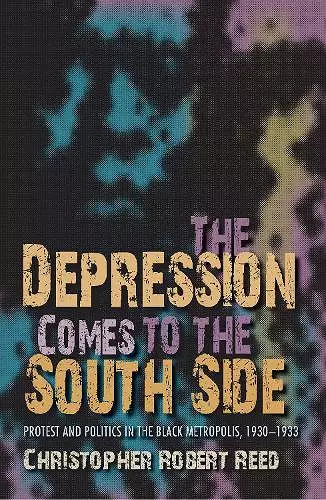The Depression Comes to the South Side
Protest and Politics in the Black Metropolis, 1930-1933
Christopher Robert Reed author
Format:Hardback
Publisher:Indiana University Press
Published:5th Oct '11
Currently unavailable, and unfortunately no date known when it will be back

Economic downturn and local politics on Chicago's South Side
Explores early Depression-era politics on Chicago's South Side
In the 1920s, the South Side was looked on as the new Black Metropolis, but by the turn of the decade that vision was already in decline—a victim of the Depression. In this timely book, Christopher Robert Reed explores early Depression-era politics on Chicago's South Side. The economic crisis caused diverse responses from groups in the black community, distinguished by their political ideologies and stated goals. Some favored government intervention, others reform of social services. Some found expression in mass street demonstrations, militant advocacy of expanded civil rights, or revolutionary calls for a complete overhaul of the capitalist economic system. Reed examines the complex interactions among these various groups as they played out within the community as it sought to find common ground to address the economic stresses that threatened to tear the Black Metropolis apart.
The Depression Comes to the South Side will be a useful study for experts seeking to fill in gaps in familiar narratives, as well as for undergraduate and graduate students looking for an initial guide to the most important events, individuals, and organizations of the years before the New Deal and the Popular Front. Perhaps the greatest importance of Reed's most recent book is that it advances his longue durée narrative of black Chicago's political history. Reed models a way to incorporate microhistories and multiple biographies into a broader understanding of a community as complex and iconic as black Chicago.
* Journal of American Studies *Reed offers a summary of the impact of the Depression on Chicago's South Side in the few years prior to Franklin D. Roosevelt's 1932 election, and before the New Deal began to ease the suffering of the city's African American population.118.4 2013
* American Historical Review *In demonstrating [Chicago African American's] restlessness and frustration with traditional tools for advancement, Christopher Reed's The Depression Comes to the South Side . . . [begins] to show us how and why African Americans decided to change their political fate.
* JOURNAL of ILLINOIS HISTOISBN: 9780253356529
Dimensions: unknown
Weight: 454g
204 pages